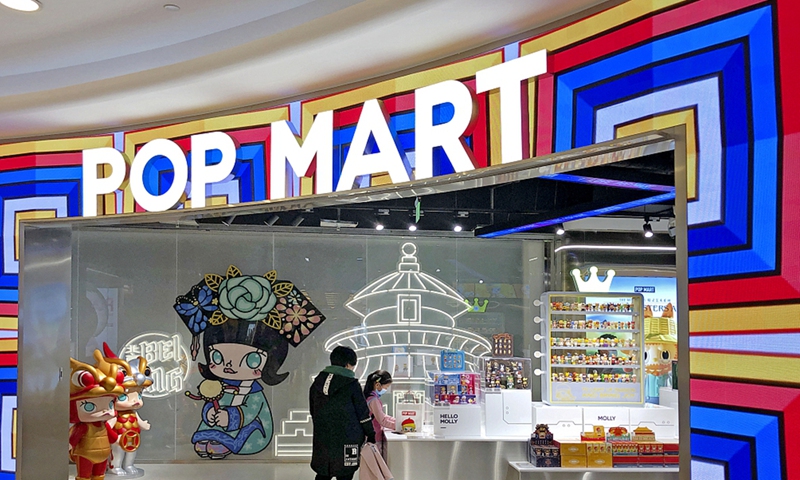China’s mystery boxes win hearts overseas as exports shoot up 400%
Source: Global Times Published: 2020/12/17 23:09:59

Photo: VCG
Mystery boxes, a toy box that contains one figure from a large selection that is not visible until it is open, are gaining popularity overseas as well as in the domestic market, with online exports surging more than 400 percent so far this year compared to 2019.
According to a report sent to the Global Times by online shopping platform Tmall Global, this year has seen “an explosion of overseas sales” of mystery boxes. Several mystery box brands from China such as Pop Mart and 52Toys have been gaining increasing popularity, and their products have been exported to more than 120 countries and regions including the US, Australia and Canada.
Among them Pop Mart has seen the sharpest growth this year. According to Tmall Global, the company alone accounts for more than 35 percent of overseas sales of mystery boxes, and in 2020 its total sales volume has increased more than tenfold. Its most popular item is the Molly doll, a little girl figurine created by a Hong Kong artist, and a toy box is usually priced at 59 yuan ($9.1)
The Beijing-based company is already massively popular among Chinese customers. Last week its share price rose more than 100 percent on its debut on the Hong Kong Stock Exchange, with its IPO raising $676 million.
According to information filed with the Hong Kong Stock Exchange by Pop Mart, the company's revenue grew for three consecutive years from 2017, rising from 158 million yuan in 2017 to 1.683 billion yuan in 2019. By June 30 this year, Pop Mart's membership subscriptions reached 3.6 million.
The majority of the customers for Pop Mart's figurines are females aged between 15 and 35, the research firm Frost & Sullivan said.
The success of Pop Mart has attracted many more companies to the lucrative designer toy market. According to tianyancha.com, a company information platform, the number of designer toy companies has increased to more than 800, up from around 100 back in 2017. The second biggest mystery box maker, 53Toys, also saw a rise in exports of more than 200 percent, even though its market share is relatively small at less than 10 percent, up from around 5 percent last year.
The mystery box’s success can be attributed to its commercialization of intellectual properties (IPs), which enables the consumer to buy IP products at a much lower price than traditional designer toys, Liu Dingding, a Beijing-based independent analyst told the Global Times.
"Commercializing IPs at a much lower price allowed Pop Mart to expand its consumer base, leading to explosive growth for the past two years," Liu said.
So far Pop Mart has been operating a total of 93 IPs, but only 12 are self-owned. Another 56 IPs are not exclusive for the company's commercial use, and 25 are exclusive, according to information publicized by Pop Mart.
"Without a stronghold on enough IPs to appeal to its consumers, the company may face challenges such as over-reliance on a few IPs, which may lead to a decline in store expansion rate. Coupled with the challenge from the rise of other similar brands, Pop Mart's growth today may lead to risks in the future," Liu said.
Global Times
Posted in: INDUSTRIES